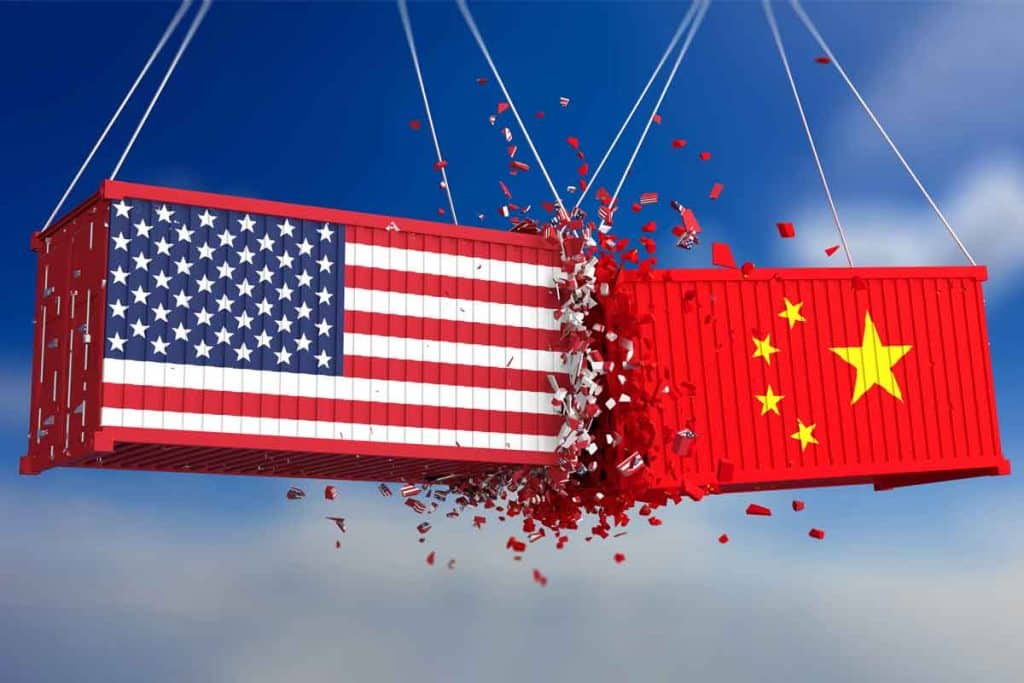Geopolitics is no longer an optional concern for businesses, experts told Arabian Business, as recent global developments reshape the world order and companies become collateral damage due to sanctions and trade restrictions beyond their control.
For years, most companies viewed geopolitics as little more than another risk that could be managed. But that worldview is rapidly becoming outdated as geopolitical tensions disrupt businesses in unprecedented ways – from supply chains to workforce issues to consumer behaviour.
“It used to be that geopolitics was only about commodities or compliance. But today, geopolitics spans the entirety of business,” said Abishur Prakash, founder of The Geopolitical Business Inc.
“There is no part of an organisation that is ‘untouched’ or ‘immune’ from geopolitics. Wherever a business looks, geopolitics is present.”
Over the past few years, several businesses have suffered major blows due to geopolitical issues stemming directly from the country in which they are based, placing them in the crosshairs of transregional disputes like trade wars and sanctions. Some recent examples of this include KLM being unable to compete with Chinese airlines that can use Russian airspace, chipmakers like AMD and Intel stuck in a “tug of war” with the US government over what technology can be exported to China, and Starbucks having to recalibrate sales forecasts after boycotts across the Arab world over conflicts in the Middle East.
This ongoing push and pull of international interests prompted diplomatic advisor to UAE President Dr. Anwar Gargash to state that the existing global system “is being eroded” at the Raisinia Dialogue in Delhi earlier this year.
“We have to understand that, in reality, the system is being eroded while our ability to introduce something new is really diminished, so we have to really think about how to deal with that,” the veteran diplomat said.

Prakash noted that this trend has begun to build up steam in recent years.
“Whether it is the wars in Europe and the Middle East, the US-China rivalry, or other events, the geopolitical climate has completely changed from just a few years ago,” Prakash explained.
“Now, geopolitics is constantly smashing against the borders of business in unprecedented and disruptive ways.”
Gulf firms face growing geopolitical pressures
Businesses in Saudi Arabia and the UAE are feeling these disruptive geopolitical forces acutely, according to Prakash. As conflict rages in nearby hotspots like Yemen, Palestine, and Ukraine, and areas of tension with Iran, the ability for nations to remain neutral could weaken them and create spillover effects in the private sector.
This is also happening against the backdrop of the recent expansion of the BRICS trade alliance which now includes: Brazil, Russia, India, China, South Africa, Ethiopia, Egypt, Saudi Arabia, the UAE, and Iran.
“The old Middle East of the past decade, which was defined by commerce, development, and growth, dominated by stability and integration, is fading away,” he warned. “today, the Middle East has three conflicts being waged at the same time, and behind this is the US-China fight entering the borders of regional nations.”
He pointed to the recent statement by Saudi Arabia’s Alat AI fund that it would divest from China and move closer to the US if requested, as an example of how the competition between great powers is forcing companies and countries to effectively “pick sides.”
“This kind of status quo makes geopolitics impossible to push aside, especially for companies in regional epicentres like the UAE and Saudi Arabia,” Prakash added.
“The objectives and strategies firms have set now sit against this new geopolitical backdrop. In many ways, geopolitics will determine what can actually be achieved.”

Nicolas Michelon, founder and CEO of Asia Intelligence Advisory, agreed that no business is immune from geopolitical forces regardless of where they are headquartered or operate.
“Those located in the UAE and KSA are particularly vulnerable as they stand in very close proximity with the current conflict hotspots and geographies where recent conflicts are not entirely over,” Michelon explained.
“Those corporates definitely benefit from the constructive diplomatic efforts deployed by the governments of the UAE and KSA to act as peace brokers in the region, making these two countries relative safe havens.”
“This plays in their favour when exploring opportunities in and around the region, as they can capitalise on the great amount of goodwill generated by their government’s diplomacy. This is particularly the case in North Africa, sub-Saharan Africa but also in Türkiye.”
Economic warfare weaponises corporate interests
Both experts emphasised that geopolitics is no longer confined to the realm of military conflict and diplomacy. Instead, it has evolved into a form of economic warfare where corporate interests are being actively weaponised by state powers in a battle for technological superiority, market access, critical resources, and ideological dominance.
“The times of the ‘international, borderless’ corporate are over,” Michelon said. “Companies are being reminded that, in spite of their international reach, they belong somewhere — a specific flag is flying over their headquarters — and this makes them a target or at least a pawn in this New Cold War.”
He pointed to the example of HSBC being torn between lawfare pressures from the US and China, leading to a potential breakup of the bank. Swiss company Holcim also recently announced spinning off its US operations due to protectionist policies in the Inflation Reduction Act aimed at European exporters.

“Warfare has become economic, technological, legal, and is being waged through influence in norms, standards, ethical frameworks, and culture — all of which are weaponising corporate interests in the objective of achieving supremacy,” Michelon added.
Certain industries have also become prime targets, especially when it comes to current global power dynamics — the ‘New Cold War’ rivalry between the US-led order and its challengers like Russia, China, and emerging middle powers. Sectors like technology, defense, aerospace, critical raw materials, energy transition, and food have been impacted the most as they represent, according to Michelon, “pillars of resilience” for any nation.
“Sitting on the fences of the US-China tech war is becoming increasingly difficult, if not downright impossible.”
Rethinking business models for a ‘bipolar world’
Both experts agreed this new geopolitical reality, marked by a fracturing world order and intensifying US-China rivalry, will force businesses across all sectors to fundamentally rethink their operating models and corporate structures.
“Corporations urgently need to learn how to view the world as driven by the ‘4 Bs’: a bipolar world order, binary narratives of ‘democracy vs autocracy’, the rise of exclusive trading blocs, and the bifurcation of technology standards and supply chains,” said Michelon.
Prakash also agreed, stating that resilience alone will not be enough for companies hoping to withstand the geopolitical upheaval. “Geopolitics is putting the world of business under siege in a way few organisations have experience with or have prepared strategies for,” he said.
To survive this “bipolar world order” as Michelon calls it, businesses will need to duplicate operations across regions, localise R&D, reconfigure supply chains, and potentially even abandon certain markets that become untenable due to mutually incompatible political and regulatory environments.

“More than ‘digital transformation’, it is ‘geopolitical transformation’ that should be the first order of business for any corporation out there,” said Michelon.
“Corporate structures will need to adapt, some businesses might need to be abandoned, others started from scratch, R&D increasingly localised and operations and supply chains duplicated.”
Prakash agreed this profound strategic rethinking is necessary, referencing his recent 2024 outlook for executives: “Geopolitics is no longer just a risk – it may be worth mentioning this, as this is part of the new paradigm companies must adopt as geopolitics disrupts them.”
As the world’s political and economic landscape rapidly shifts under the weight of escalating great power competition, one thing is clear: businesses can no longer afford to neglect the intrusive reality of geopolitics.






